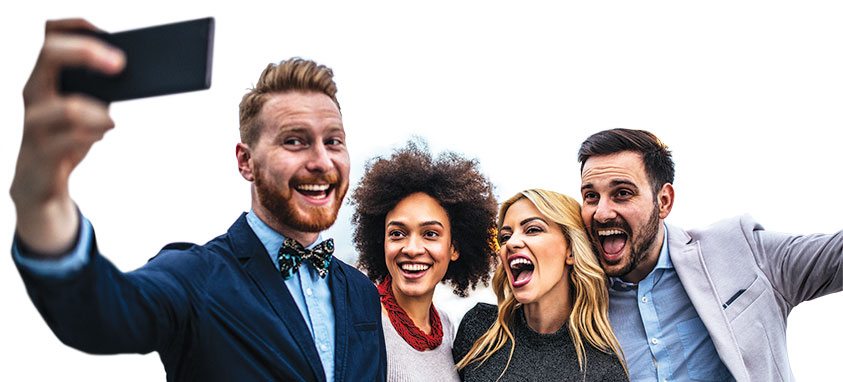Event tech, local experiences and healthy giving are the new normal
Rewarding sales success is one of the few universally accepted rules for ensuring continued high performance. While an Aberdeen Research study showed that all top companies offer group travel incentives, programs are evolving along with shifts in the meetings industry to focus more on unique experiences and wellness.
A CareerBuilder survey showed that 50 percent of employees considering a job change would reconsider if they were presented with an increase in employee recognition. But the benefits go beyond retention. Courtney Spero, marketing communications specialist at Schaumburg, Illinois-based Creative Group, points to studies in the United States, United Kingdom and India by Society for Incentive Travel Excellence (SITE) that show almost 90 percent of respondents had positive associations with their incentive travel experience. Testimonials ranged from feeling appreciated and recognized by the company and peers to an increased desire to continue to excel and earn similar rewards in the future.
The shared experience of group travel has been shown to bring people together in powerful ways. “The bonds created during a group incentive trip can help propel the trajectory of the winner’s career and create a more connected workforce,” Spero said in a white paper titled “Navigating the New Global Business Marketplace.” She compares this community-building effect between co-workers and management to welcoming employees to “the club.” Sharing time outside the office opens lines of communication and offers opportunities to have candid discussions about business strategies and mission.
1. Make the Experience Special
The trend toward incorporating a sense of place in meetings is also becoming a requirement in incentive travel. Immersing participants in local culture, and educating them about customs and traditions of the destination, have become part of the travel itinerary. “Local experiences are desirable because they are authentic, unique and memorable,” Spero says.
A trip to Ireland can embed attendees in the homes of local residents who lead sightseeing trips, welcome them to the family table and forge friendships that last for years. Or, a trip to Panama can include a canoe paddle in the rain forest with an Embera tribe that ends in music and dancing. What if a trip to Florence, Italy, included a high-end designer giving a tour of leather-making, followed by a Florentine lunch at her family’s restaurant and a store credit with a personal shopper at her boutique? These are all adventures Creative Group has arranged that will create memories for lifetimes.
2. Design the Adventure for Sharing
In another parallel to the meetings industry, technology has become an integral part of incentive travel. Event apps make it easy to organize activities, share adventures with pictures and posts, and bring people together on a common platform. Since, by definition, travel happens out of the office, mobile apps are a natural organizational tool. Push notifications can keep the agenda moving along and digital maps can make navigation easier. Apps also lend themselves to gamification and can facilitate scavenger hunts and other team-building games.
3. Give Personal Praise
Customizing the incentive trip starts with registration. Employers who ask the right questions at this point can zero in on the personalities of attendees so that everything from room-drop gifts to bespoke agendas fit the preferences of each person.
Spero suggests going beyond big data and leaving handwritten notes from supervisors or recording thank-you videos calling out individual contributions to team goals. “Pack the tissues, though,” she warns. “There won’t be a dry eye in the house!”
Incorporating corporate social responsibility (CSR) and healthy activities in travel is now the new normal. “CSR initiatives are an excellent way to help a cause, enhance the engagement of employees and be seen as a caring business partner,” Spero says. She cites RR Donnelley’s 2015 Global Corporate Social Responsibility Study that found 84 percent of global consumers seek out responsible products when they shop and 91 percent expect companies to do more than make a profit. Including activities that make a difference to the lives of people living in the destination is one way to connect the trip to the company mission and make the experience meaningful.
Incentive trips are also an ideal time to schedule time for self-care. Spero cites examples of agendas that include floating therapy, hiking and workouts to help attendees feel better about themselves.




